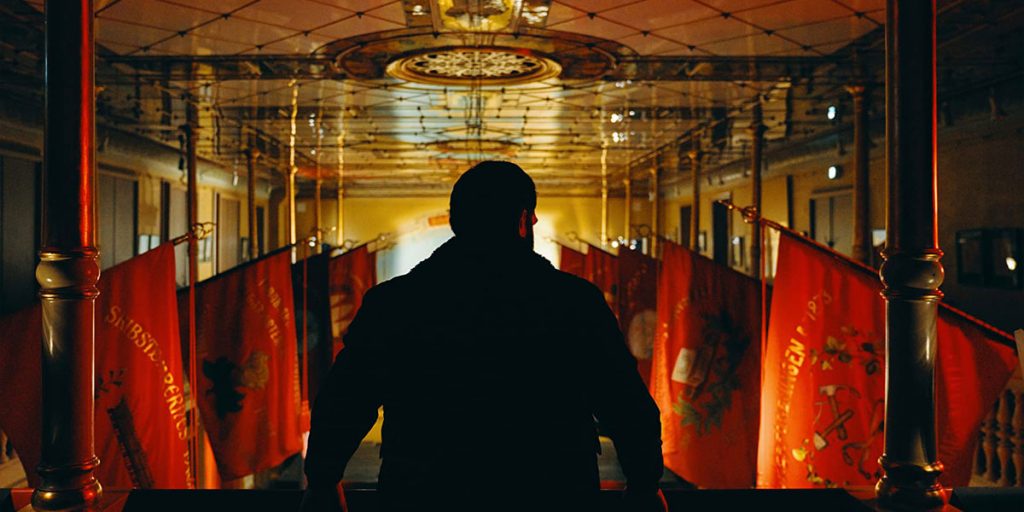Sons of Denmark imagines an eerily familiar scenario of a nation on the brink of fascism, in this enthralling feature film debut from a provocative new cinematic voice.
Sons of Denmark (Danmarks sønner) imagines Denmark in the year 2025, in the aftermath of a terrorist bombing where a far-right party known as the National Movement looms over the political horizon, as party leader Martin Nordahl (Rasmus Bjerg) seeks to win the office of prime minister with a campaign built on extreme immigration and deportation policies. Adding action to Nordahl’s fiery rhetoric is the Sons of Denmark, a terrorist group targeting immigrant and Muslim communities with violent, xenophobic attacks throughout the country. Meanwhile, as an underground cell plots acts of resistance against the Sons of Denmark, the young Zakaria (Mohammed Ismail Mohammed), angry and desperate to take action, is tasked by Malik (Zaki Youssef) with assassinating Nordahl, and the two are led on a dangerous path that will decide the fate of Denmark.
Despite the nationwide and global implications the story poses, writer and director Ulaa Salim keeps the story contained and focused on the human drama of a small ensemble of characters, exploring their ideological struggles in the midst of crisis. The speculative worldbuilding takes a backseat, perhaps a missed opportunity for a larger creative vision, but the plot remains gripping enough to keep viewers engaged, even if it is a calculated, slow burn for much of the 123-minute runtime. The film may lose some viewers halfway through, as the story takes an abrupt turn and ventures along a completely different direction, but, if you can get past this sudden change, the second half ignites with even more tension and momentum as it builds with unnerving desperation towards a shocking finale.

In this stunning feature film debut, Salim presents himself as a cinematic force to be reckoned with, as Sons of Denmark electrifies with its dynamic visual approach. The camera remains frequently in motion, adding visual tension and unease that reflects the fractured political atmosphere and at a few pivotal moments, twists and turns at dizzying angles. Shots remain close and tight, faces and bodies kept in focus while backgrounds are obscured, favoring the human dimension instead of the larger sense of scale the speculative premise poses. Meanwhile, many shots are bathed in red, clearly signifying a film entrenched in violence and anger. While stylistically creative throughout, the film’s one noticeable misstep is an overreliance on the “Lacrimosa” from Mozart’s Requiem in D minor. The piece works brilliantly in the film, the operatic melancholy perfectly adding a musical dimension to the violence and tragedy onscreen, but, by a third appearance, its inclusion becomes too repetitive.
Sons of Denmark comes recommended as both a pressingly topical story and an unnerving cinematic experience. Though a work of speculative fiction, the film’s themes of xenophobia, nationalism, and political violence deeply resonate with troubling familiarity as we are witnessing the rise of far-right movements and fiery demagogues across the globe. The intimate yet kinetic cinematography grounds the despair and desperation, crafting a unique aesthetic vision that immerses us into the world of 2025 Denmark and takes us into harrowing depths of political nihilism and inhuman violence, especially in its distressing final moments that unsettle the viewer long after the film ends. This is not a thriller to watch and enjoy, this is a cinematic warning that offers no solutions or hope to a world on fire, but instead opens our eyes to the flames and shows us a future that must desperately be avoided.

